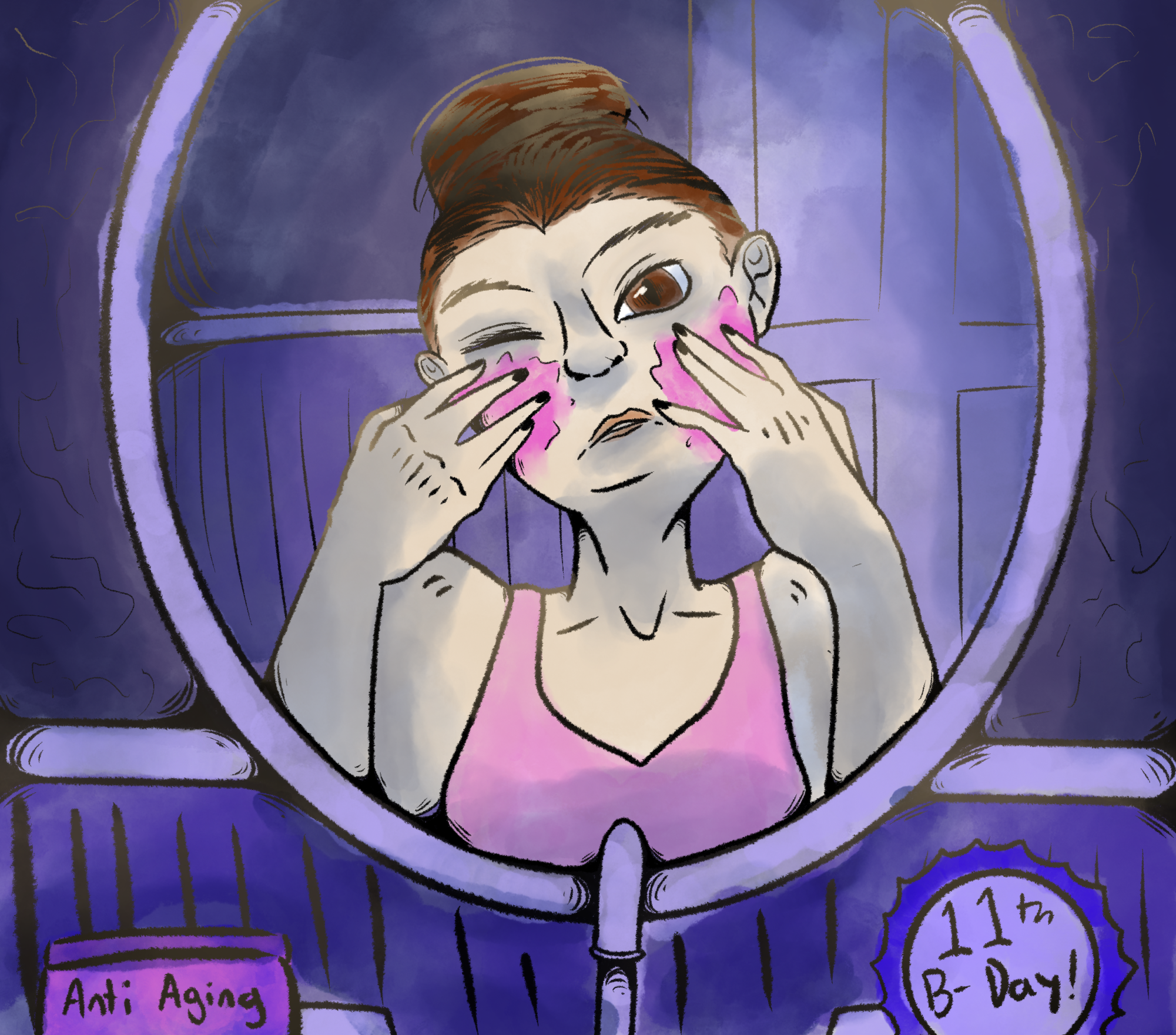Pre-teens and teenage girls have always been obsessed with makeup. When I was 11, I’d look up ombre eyeshadow tutorials and lipstick combinations. It’s what was popular, I swear. And now, the new generation of children has a new craze– skincare.
Skincare has become a rising trend for preteens. Skincare isn’t exactly makeup; but it shares the same goal– to enhance the appearance of your face. Whether it’s cleanser, moisturizer, sunscreen, toner, or hyaluronic acid, when you step into a Sephora, you’ll likely see a gaggle of young girls, known as Sephora Tweens, scooping up skincare products by the basket-load.
Now, this doesn’t sound like much of a problem— it’s natural for young girls to be interested in beauty products. But the massive influx of kids clogging the aisles and buying up all the products in the popular beauty stores has irritated regular Sephora shoppers, and the kiddos have gained a bad reputation along the way.
But I’d like to make the case that the adults up in arms about the Sephora Tweens are, in fact, criticizing the wrong thing. Sure, it can be inconvenient to have your product snatched away from you by a twelve-year-old, but the real problem is that these products are actually harming tweens and young girls in more serious ways— notably, their skin and their mental health.
To understand the real issue, you’ll first need to understand what exactly they’re buying.
According to an article on USA TODAY, One of the most popular purchases among skin-care fanatics are anti-aging products such as retinol and exfoliating acids. Retinol and anti-aging skincare products are designed to aid collagen production (collagen being a protein responsible for skin, nail, hair, and joint health), which keeps wrinkles at bay and increases the elasticity of the skin. The issue? Collagen production in skin doesn’t start decreasing until the late twenties. So while effective for adults, retinol is generally too harsh for children, causing a red, dry, and itchy rash called retinoid dermatitis.
The case is the same for exfoliating acids and products with fragrances– they tend to irritate the skin of most kids. The constant irritation will weaken the skin barrier, and actually cause dryness and redness that wasn’t there before using the product.
Now imagine a 12-step skincare routine, packed with fragrance allergens and highly active ingredients tween skin isn’t ready for. It’s a recipe for disaster.
So why are girls feeling so pressured to buy skincare they don’t need? Two answers: marketing and social media. All the more reason for not “blaming” them and finding them so irritating.
TikTok boasts over 1 billion users, with 25% of these users are under 20 years old. Even though many TikTok accounts belong to those under 20, the majority of influencers, especially beauty influencers, are adults. When people see the “perfect” image influencers put out there, it creates a mental pressure for those watching to follow in their footsteps.
Further, many beauty influencers denounce aging on their pages, and end up creating a fear of aging early on in their viewers’ lives–even if they’re just children. Then, they’ll post “Get ready with me videos,” showing what products they use to prevent aging and achieve perfect skin.
And remember, most influencers are adults, but despite that, many tweens may see a retinol or acid being used, and purchase it without further research, unaware that it should only be used on older skin.
It benefits the influencer. It benefits the brand. But my god, the anti-aging chemicals and the psychological effects harm the children way more than just a simple pimple would.
I don’t blame Sephora tweens for jamming the Ulta aisles and hoarding the skincare products when it’s the only thing that shows up on their feeds, and neither should you. Beauty influencing is powerful enough that people– including myself– come to believe that they’re ugly for not following the trends.
So we’ve come to a point where buying skincare needs to be limited for the physical and mental health of these kids too; not because they’re annoying consumers.
It wouldn’t be fair to completely cut off Sephora tweens from skincare. It would be like taking away makeup or slime from past generations. But parents should regulate what products they buy for their kids’ own safety, and they should inform them on the power of trends being the cause for what may be a dangerous obsession.



MAKEUP USERRR • Jan 22, 2025 at 1:08 pm
I think this is good because we are doing a project on it and I use skin care and makeup every day so slayyyy
Lynn Minor • Nov 5, 2024 at 10:41 am
i think all of us HS girlies know what that point of life is like, but i absolutely agree that it’s getting out of hand. It’s so aggravating that society has come to this- convincing young tweens that they need to use anti-aging and de-wrinkle products (i don’t know what their called) to be considered ‘pretty’ 🙁
this is a great article!
Julie Harris • Nov 4, 2024 at 8:19 pm
so fire grace 🔥🔥
Nancy • Nov 4, 2024 at 5:18 pm
Great job Grace!! Very informative..